Benefits of Cinnamon Tea

Cinnamon isn’t often a spice you think about when making your morning cuppa. Although some choose to add a sprinkle of it to Fresh Coffee, most wouldn’t actively choose it as a standalone infusion.
However, the benefits of Cinnamon Tea may soon change this for the better. What’s more, and perhaps more importantly, it tastes great! So, let’s find out more!
Table of Contents
The time has come to dive deep into the world of this remarkable spice. Discover its true potential with The Kent and Sussex Tea and Coffee Company.
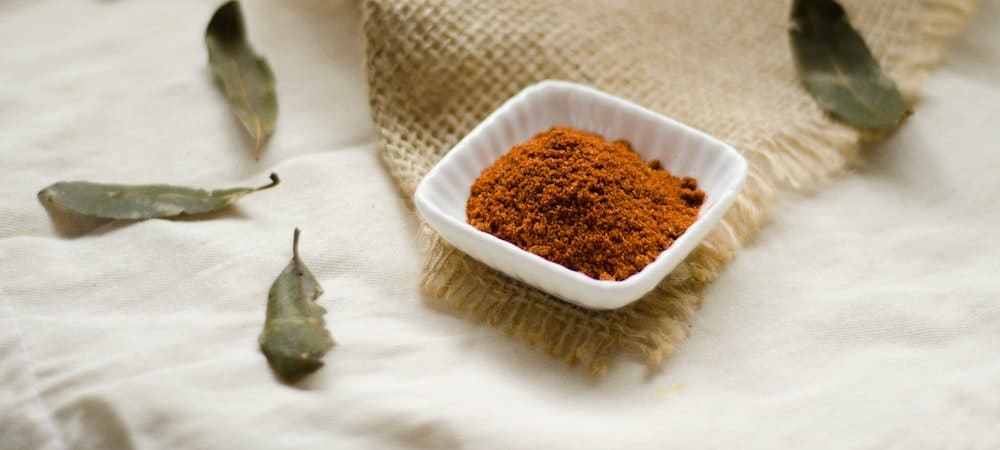
What is Cinnamon Tea?
Cinnamon is a spice from several trees in the Cinnamomum genus of the Lauraceae family. The tree itself can reach heights of up to 30 feet (approx.
9 metres), boasting strong branches with leathery, petiolate leaves. These leaves are but one choice of component for making Herbal Tea, particularly Cinnamon Loose Leaf Tea. However, it isn’t the most famous brew derived from this species.
It is the bark, in fact, that most people recognise and enjoy in a variety of culinary dishes. This is the Cinnamon as we know it, the one noted for its sweet, aromatic taste with spicy undertones. It is also the one that comes with the benefits of Cinnamon Tea.
Trade in this spice began many hundreds of years ago, with Arab merchants once maintaining a monopoly over the industry. In order to entice potential customers into a sale, these dealers once told colourful, fantastical stories about its origins.
According to one tale, gigantic birds “guarded” this spice high on mountain peaks – away from the people. When local communities discovered its existence, however, they decided to lure the birds down from their perches using ox meat.
The creatures took the food back to their nests where the weight of it toppled the cinnamon down to the ground. All that was left, then, was to collect it – or so the story goes.
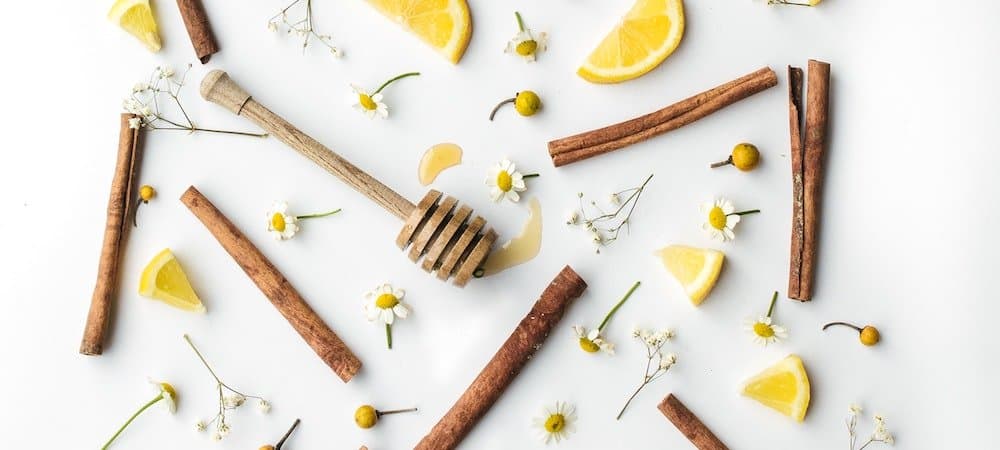
Cinnamon Tea Nutrition and Properties
While tales of birds on mountain peaks are nothing more than myths, the benefits of Cinnamon Tea come with irrefutable evidence.
But how and why, exactly, can this herbal infusion improve life in small yet significant ways? The primary answer is its wealth in vitamins, minerals and other antioxidants. This includes (but is not limited to) the following properties:
Properties of Cinnamon Tea |
|||
|---|---|---|---|
| Eugenol | Mucilage | Tannins | |
| Carotenoids | Phenolics | Calcium | |
| Iron | Magnesium | Phosphorus | |
| Potassium | Vitamin A | Cinnamaldehyde | |
It’s essential to note, however, that some of the above constituents only exist in trace amounts in Cinnamon Tea. Nevertheless, when combined, these extraordinary chemical compounds can improve health and wellbeing in a vast multitude of ways.
A study published in the Journal of Agricultural and Food Chemistry compared the antioxidant activity of 26 spices, this one included. It found that Cinnamon Tea was the clear winner – even outranking so-called “superfoods” like garlic and oregano.
Let’s now explore the specifics of the benefits of Cinnamon Tea.
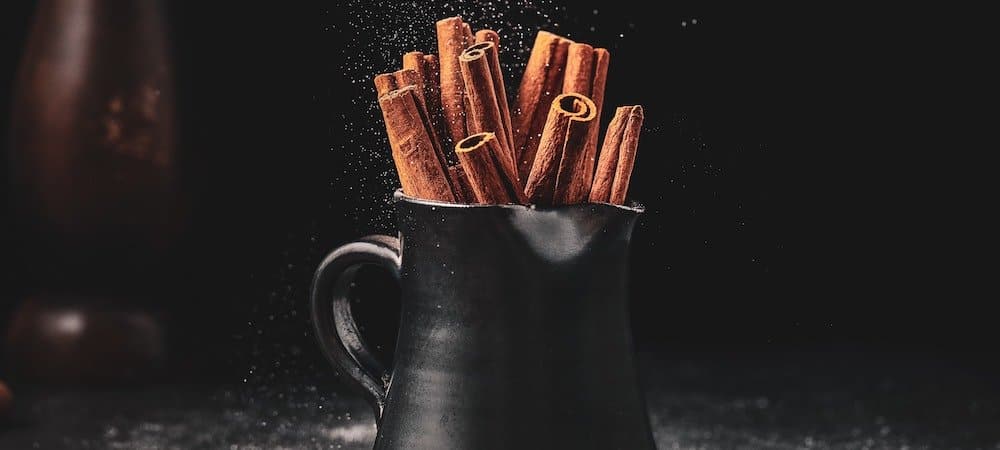
Benefits of Cinnamon Tea
Evidence indicates that the properties found in Cinnamon Tea can, among other qualities, combat free radicals in the body. These are unpaired (and unsafe) electrons introduced through the natural, though often harmful, process of human oxidation. Many recognise this as “oxidative stress”.
This process ultimately triggers cell damage, thus increasing the risk of several chronic conditions, including cardiovascular disease, Alzheimer’s disease, Parkison’s disease, diabetes and cataracts.
The benefits of Cinnamon Tea, on the other hand, can reduce these risks. Pretty neat for your new favourite beverage, wouldn’t you agree? But that’s not all on offer here!
There are many researchers out there that now believe that Cinnamon Tea can improve skin health, promote weight loss and provide menstrual relief. Furthermore, it might fight colds and colds, reduce anxiety and even, potentially, tackle diabetes.
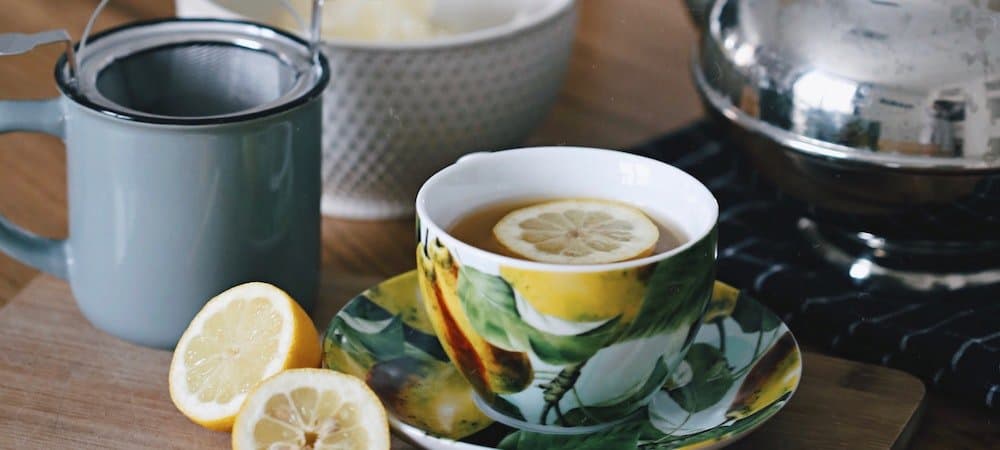
1. Keeps Skin Looking Healthy
This extraordinary infusion can keep your skin looking healthy and youthful in several ways. It’s worth noting, for starters, that it has antifungal, antibacterial and, of course, antioxidant properties.
This makes Cinnamon Tea useful in the fight against acne and skin blemishes. Using it topically, meanwhile, can moisturise while improving blood flow to the skin.
And there’s more. Cinnamon Tea also aids in the treatment of dry skin by removing dead skin cells and reinstating its natural softness. There are even suggestions it might work against eczema, a condition in which skin gets inflamed and irritated.
This is because of its anti-inflammatory properties. So, before you go out to buy that £90 skin cream, consider using the benefits of Cinnamon Tea instead!
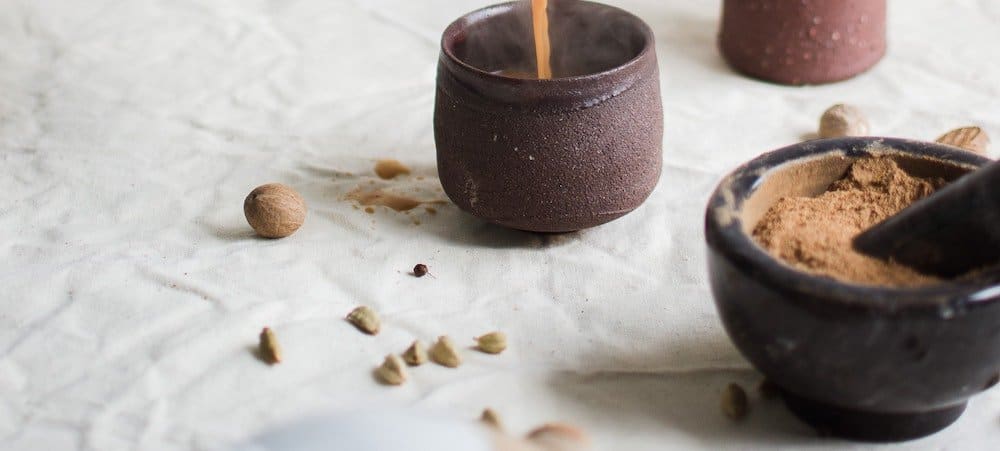
2. Can Aid Weight Loss
There is no “fix-all” solution to losing weight. It takes time. It takes commitment. Most of all, it takes a lot of hard work. But the benefits of Cinnamon Tea might, at the very least, offer a helping hand.
This is according to a Japanese study published in the Journal of Nutritional Science and Vitaminology, which noted how it reduced visceral fat in mice.
The reason? It could, potentially, have something to do with Cinnamon Tea boosting the metabolism of fat cells. If proven outright, this would mean it supported the body in burning fat not only quicker, but also more efficiently.
It’s vital to note, however, that no one knows for certain. For this reason, we do NOT endorse the benefits of Cinnamon Tea for weight loss for the time being.
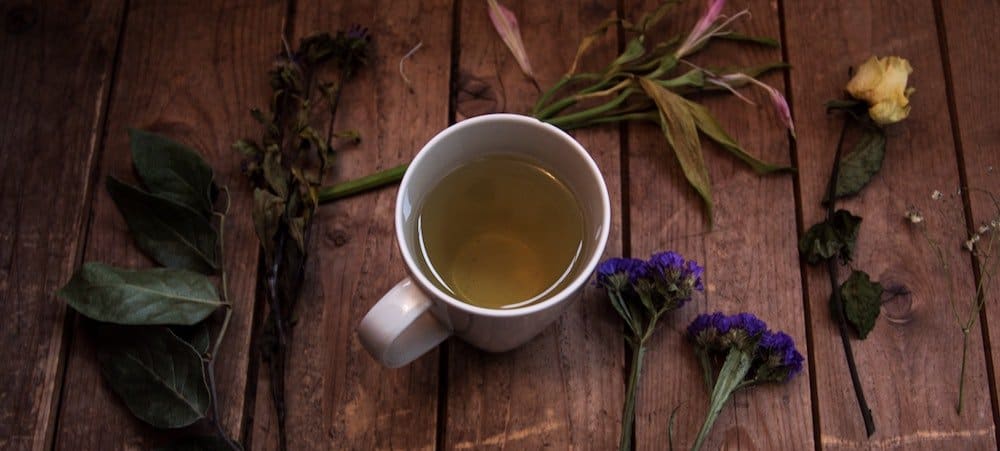
3. Offers Menstrual Relief
Who would’ve believed that the benefits of Cinnamon Tea included menstrual relief? Well, it’s true! Evidence exists in a study involving female volunteers split into two groups.
The first group of participants took three grams of Cinnamon Tea daily, while the second received a placebo. Ultimately, researchers concluded that the Cinnamon group experienced significantly less menstrual pain.
There have also been a few preliminary studies on this beverage’s potential to reduce menstrual bleeding, vomiting frequency, and nausea severity during periods.
However, it is vital to note the word “preliminary”. Nevertheless, what we DO know is that drinking this Herbal Tea can help women with premenstrual syndrome (PMS) and dysmenorrhea.
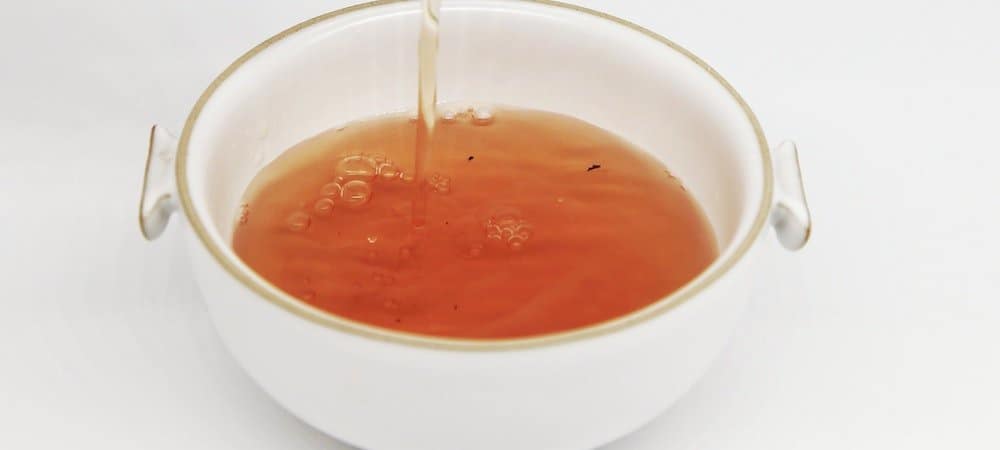
4. Helps to Fight Colds
Cinnamon Tea contains cinnamaldehyde, an organic chemical compound with antiviral, antibacterial and antifungal properties.
It is, indeed, one of the primary active components in this beverage – one that, according to research, can fight various kinds of infection.
This could mean that it helps in stopping common colds and even the flu from manifesting in the first place.
Several clinical trials show that oil made from this spice effectively treats respiratory tract infections caused by fungi, while also inhibiting the growth of certain bacteria.
Additionally, its antimicrobial effects might prevent tooth decay and reduce bad breath. So next time you have a date, in other words, it might be worth utilising the benefits of Cinnamon Tea!
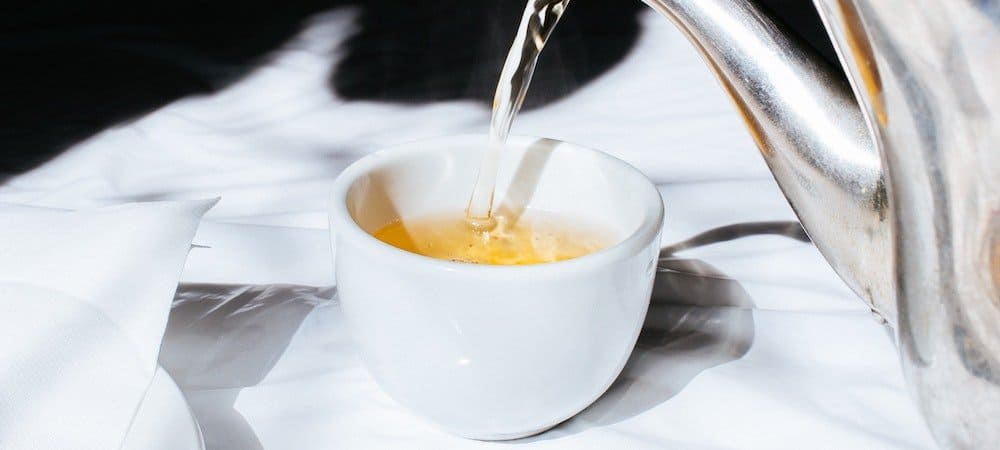
5. Can Help Reduces Anxiety
A study conducted by the Sabzevar University of Medical Sciences has discovered correlations between Cinnamon Tea and reduced anxiety.
Specifically, the findings, which were published in the Iranian Journal of Basic Medical Sciences, showcased the spice’s effectiveness in improving symptoms of depressive disorders. But how, exactly, does this work?
The theory is that it has something to do with the cinnamaldehyde found in this beverage. However, this remains unproven.
Until we know more, then, The Kent and Sussex Tea and Coffee Company urges caution when using Cinnamon Tea for reduced anxiety. Instead, we support ongoing research – which so far, looks quite promising!
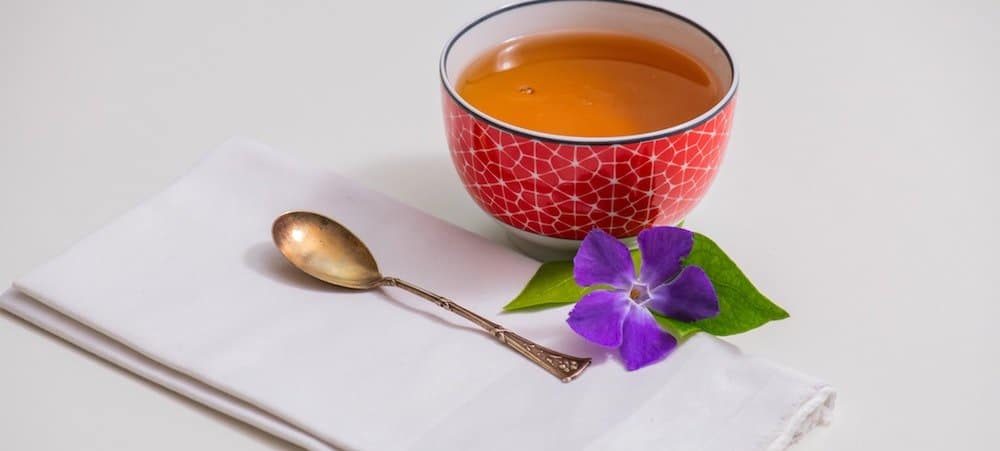
6. May Benefits Those with Diabetes
There is a possibility (emphasis on “possibility”) that the benefits of Cinnamon Tea might include improving glycaemic control. This could result in your cuppa supporting the management of type-2 diabetes.
The potential reason? It might lower blood sugars by interacting with numerous digestive enzymes, thus slowing the breakdown of carbohydrates in the gastrointestinal tract.
There is a significant amount of human-based research into the anti-diabetic effects of this beverage. One study, in fact, suggests it can lower fasting blood sugar levels by 10-29%.
However, there is, perhaps unsurprisingly, an element of risk involved. For this reason, we recommend speaking with a doctor or another medical before drinking Cinnamon Tea for this purpose.
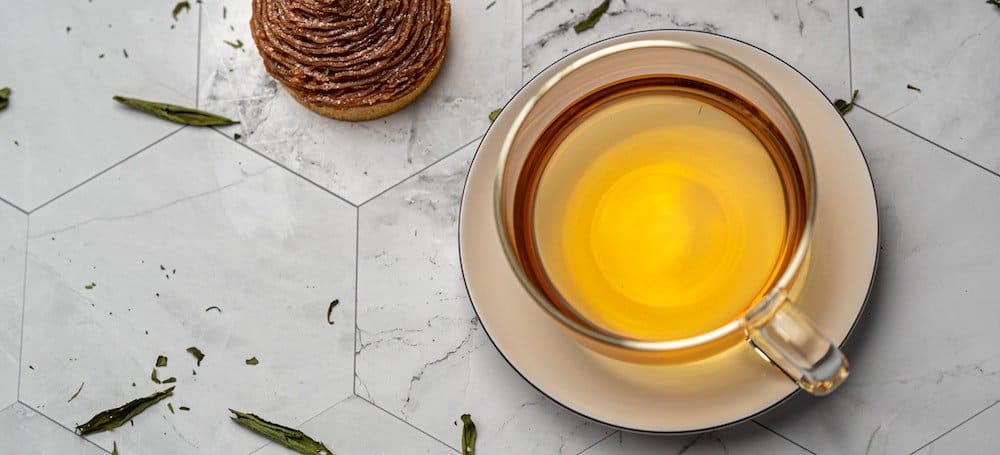
Cinnamon Tea Side Effects
Few people argue the health potential of Cinnamon Tea. Yet that doesn’t mean it’s ALL good news. Indeed, there is the possibility of experiencing side effects from drinking too much of it.
Those living with type-2 diabetes, for example, should avoid overconsumption as it might cause blood sugar levels to fall TOO low. Preliminary research has also found it to be harmful to the liver in excessive quantities.
Furthermore, some individuals have experienced mouth sores from eating products that contain cinnamon flavouring agents. If this occurs, be sure to seek medical consultation before consuming any more of the spice.
First and foremost, The Kent and Sussex Tea and Coffee Company cares about the welfare of its customers. That’s why we urge you to listen to the professionals – they know best.
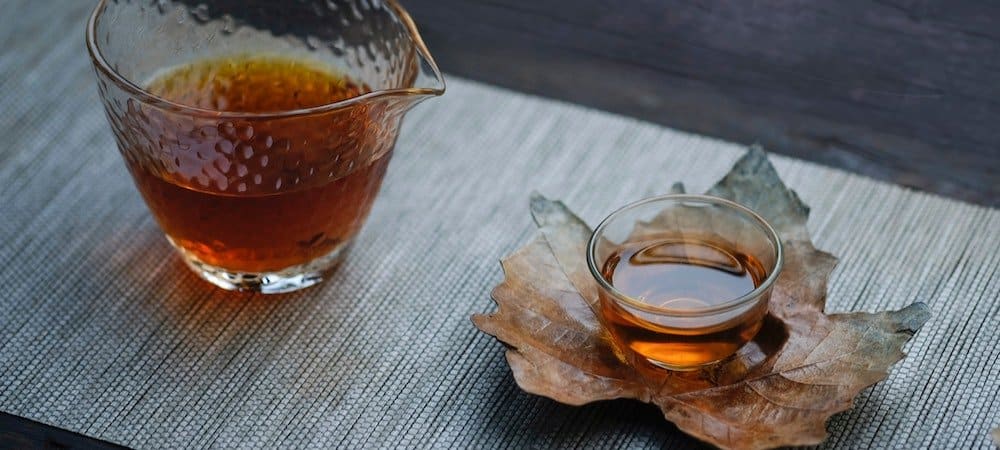
Cinnamon Tea During Pregnancy
Many doctors advise pregnant women to act with caution when it comes to herbal remedies. Cinnamon Tea is no exception, with some medical experts recommending you avoid it altogether.
This is because it is possibly unsafe when used in excessive amounts during pregnancy, mainly due to the risk of it causing premature uterine contractions.
Perhaps most concerning are the rumours that this infusion induces labour. There is no evidence to back such a claim, with the cons of trying it far outweighing the pros.
In other words, while the benefits of Cinnamon Tea have great potential in everyday life, this strictly does not apply to pregnant women. Limit your intake of the spice where possible – and consider dropping it from your diet until after the birth.
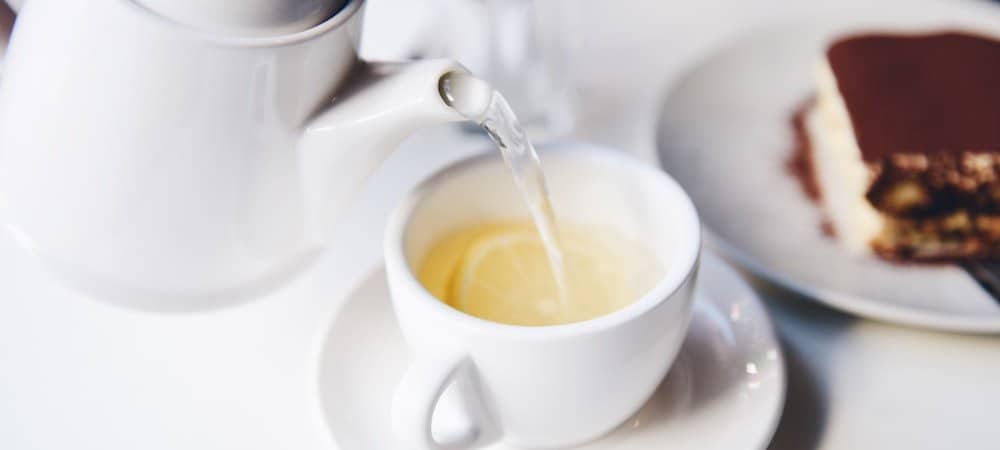
How to Make Cinnamon Tea
We stock several types of Cinnamon Tea – all of which have something unique to offer. When it comes to “how to make Cinnamon Tea”, then, it becomes a question of “what kind?”. For the sake of argument, however, we will look at our Flavoured Black Tea variety:
Time needed: 5 minutes
How to Make Cinnamon Tea
- Use a Tea Filter / Infuser.
Put Loose Leaf Cinnamon Tea into one of our Tea Filters or Infusers.
- Boil the kettle
Brew fresh water using either filter or bottled water.
- Put the Filter or Infuser into a cup.
A porcelain mug has the least influence on the taste. Avoid metallic cups where possible.
- Add freshly boiled water to your cup.
Fill your cup and mug with the water from the kettle.
- Allow it to Infuse / Steep.
Let it brew for 3-5 minutes (the longer you leave it, the stronger it tastes.)
- Consider a choice of additions.
Some people add a dash of dairy milk or a milk alternative. Others include sugar.
Now, all that’s left is to sit back, relax and enjoy your cup of delicious, invigorating Cinnamon Tea. Indulge in its sweet, spicy flavour with herbaceous undertones. And remember, you can always brew up another! What’s not to like?
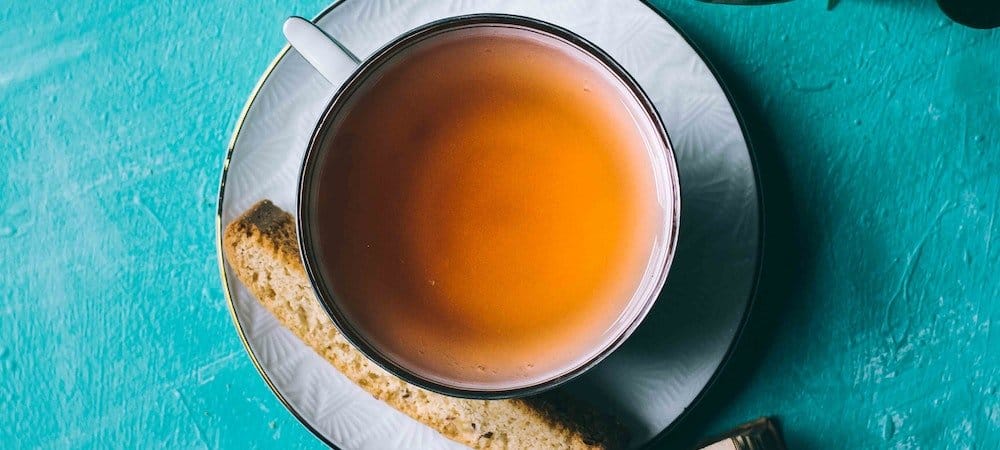
Our Selection of Cinnamon Teas / Blends
Now you know the facts, it’s time to decide which type of Cinnamon Tea best suits your personal tastes! It’s worth remembering, too, that we pack every Loose Tea, Tisane and Coffee fresh to order here at our Kent-based factory.
This ensures not only quality but also consistency. Be sure to choose a product from the list below – you won’t be disappointed!
- Cinnamon Tea: This is the perfect beverage to get you out of bed in the morning. Strong, flavoursome and nourishing, it combines the finest quality Black Tea with one of the most popular spices in the world. Every sip boasts a bold spiciness with delectable malty undertones.
- Almond and Cinnamon Black Tea: Here, we have a nutty, sweet and spicy infusion from start to finish. We use China Black Tea for the base of this exotic cup, followed by the highest calibre ingredients and all-natural flavouring.
- Cinnamon and Plum Green Tea: The benefits of Cinnamon Tea meet the Health Benefits of Green Tea in this extraordinarily nutritious brew. To this, we add plum for extra sweetness and fruitiness. It is a true delight to the senses – and an excellent choice no matter the time of day.
- Cinnamon and Plum Black Tea: This is the Black Tea counterpart of the above. Why not embrace its malty-spicy-fruity fusion of flavour, as well as well-documented Black Tea benefits today? Treat yourself and indulge in Cinnamon and Plum Tea.
- Rooibos Cinnamon Angel: Wintery festive treat or year-round delight? – You decide with our very own Rooibos Cinnamon Angel Tea! Blending classic Christmas ingredients with traditional South African Rooibos Tea makes for a match made in heaven. You might also be interested in our Christmas teas here.
Conclusion
Cinnamon Tea is a beverage with countless noteworthy qualities. The spice comes from the bark of trees in the Cinnamomum genus, and has been used for hundreds of years.
Its wealth in vitamins, minerals and other antioxidants, meanwhile, contributes significantly to its health benefits. Whatever your reason for choosing it, you’ve undoubtedly decided exceptionally well.
Related:

 Loose Leaf Tea
Loose Leaf Tea Pyramids
Pyramids Tea Bags
Tea Bags Africa
Africa Assam
Assam Ceylon
Ceylon Chinese
Chinese Darjeeling
Darjeeling European
European Indian
Indian Japan
Japan Nepal
Nepal South East Asia
South East Asia Ayurveda Tea
Ayurveda Tea Black Tea
Black Tea Chai Tea
Chai Tea Flowering Tea
Flowering Tea Fruit Tisanes
Fruit Tisanes Green Tea
Green Tea Herbal Tea
Herbal Tea Matcha Tea
Matcha Tea Oolong Tea
Oolong Tea Organic Tea
Organic Tea Pu erh Tea
Pu erh Tea Rooibos Tea
Rooibos Tea White Tea
White Tea Asian Coffee
Asian Coffee Caribbean Coffee
Caribbean Coffee Central American Coffee
Central American Coffee South American Coffee
South American Coffee Coffee Blends
Coffee Blends Decaffeinated Coffee
Decaffeinated Coffee Espresso Coffee
Espresso Coffee Ethically Sourced Coffee
Ethically Sourced Coffee Flavoured Coffee
Flavoured Coffee Organic Coffee
Organic Coffee Single Origin Coffee
Single Origin Coffee Chocolate 1
Chocolate 1 Chocolate 2
Chocolate 2 Chocolate 3
Chocolate 3 Chocolate 4
Chocolate 4 Chocolate 5
Chocolate 5 Chocolate 6
Chocolate 6 Chocolate 7
Chocolate 7 Chocolate 8
Chocolate 8 Chocolate 9
Chocolate 9 Loose Tea Filters
Loose Tea Filters Tea Accessories
Tea Accessories Tea Bricks
Tea Bricks Tea Caddies
Tea Caddies Tea Caddy Spoons
Tea Caddy Spoons Tea Gift Ideas
Tea Gift Ideas Tea Infusers
Tea Infusers Tea Strainers
Tea Strainers